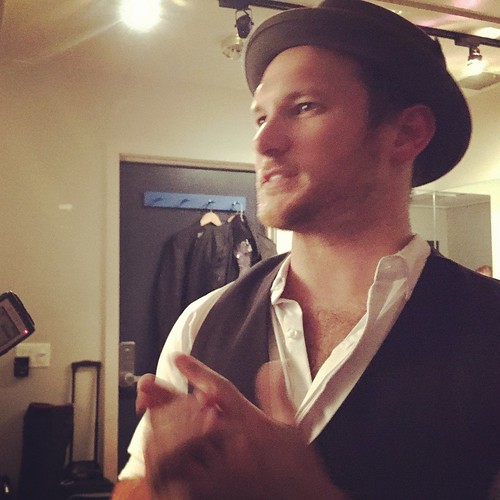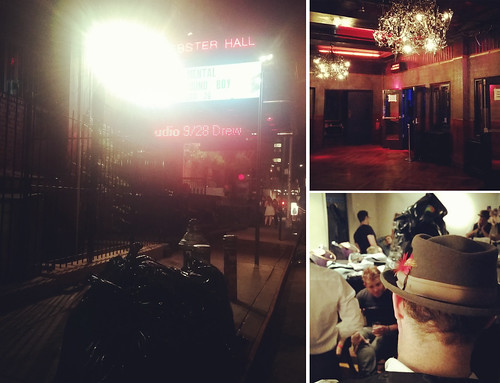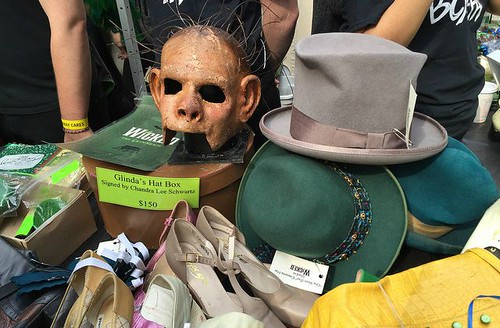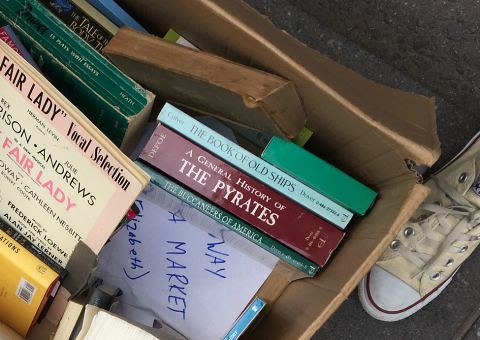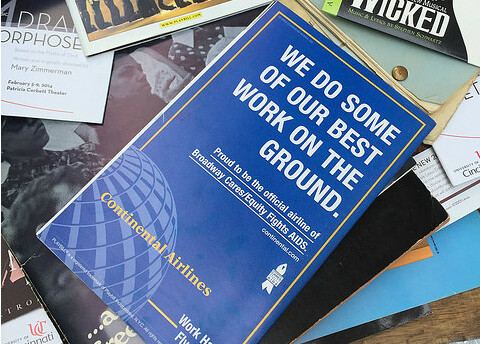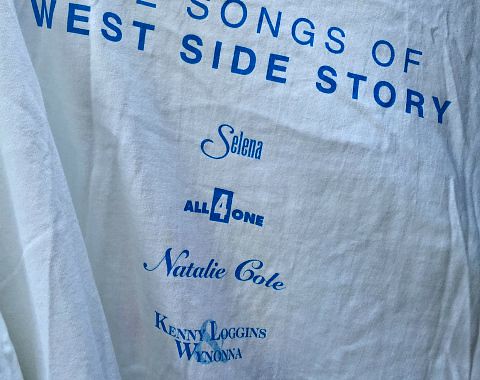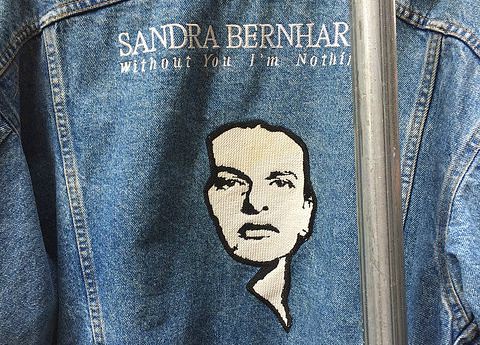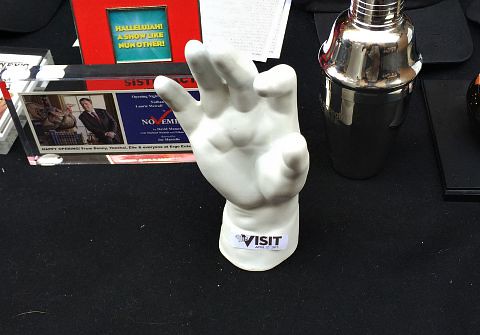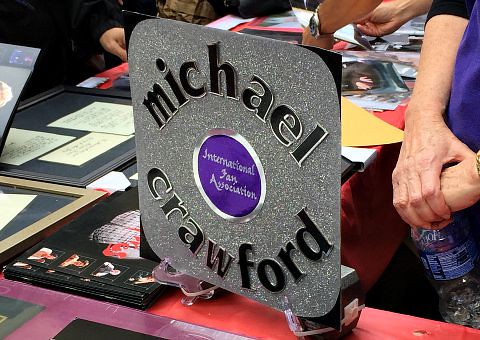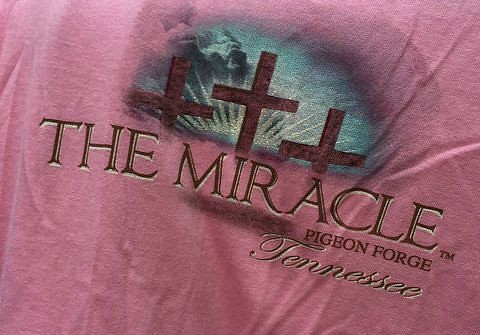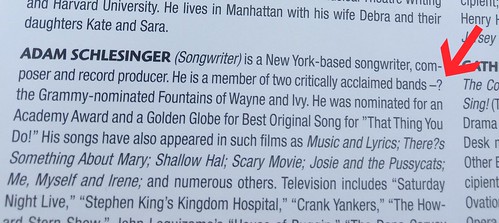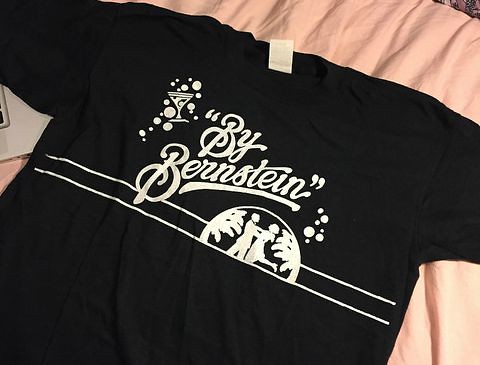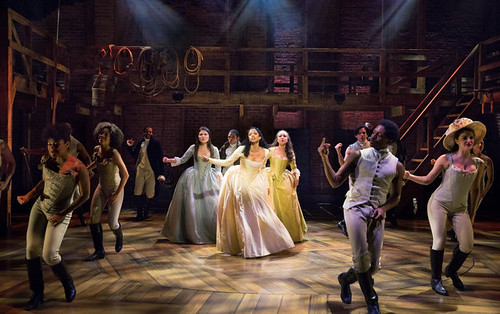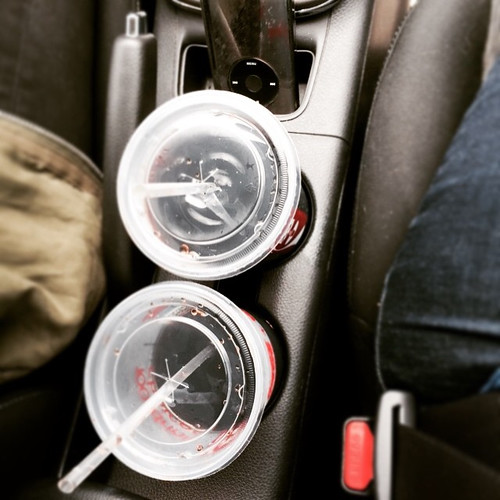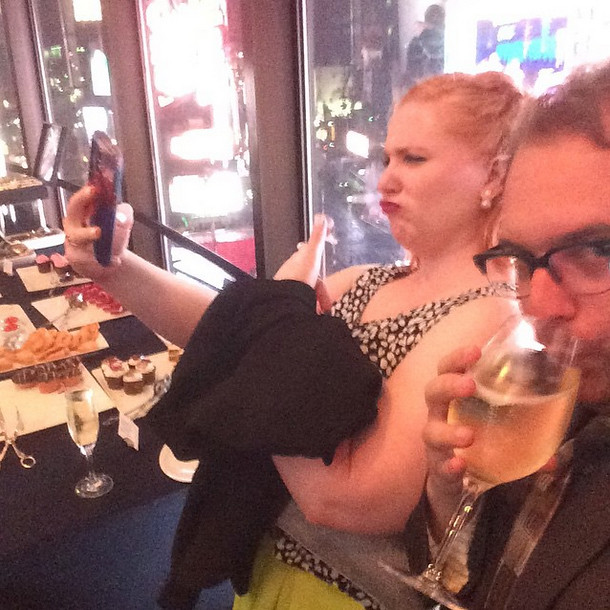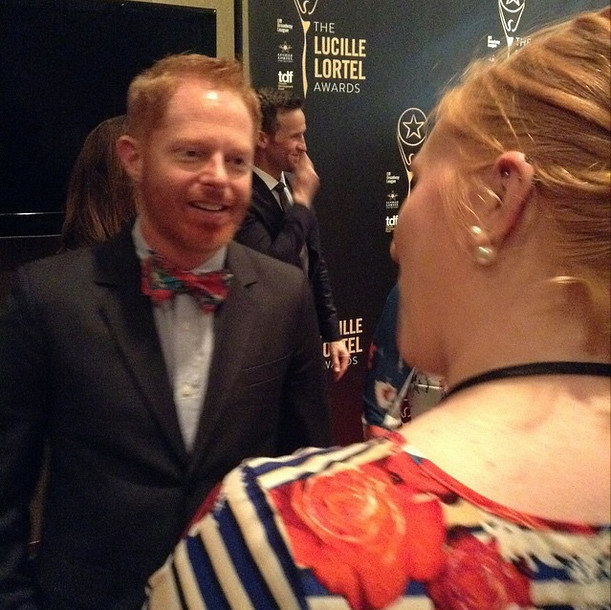Writing about theater is hard.
I mean. Writing is hard, just in general. Some days it’s there, and some days it’s not and honestly more days it’s not and nothing hurts like missing the words but nothing ever feels better than getting them right and really, writing is just a constant battle for that one glorious moment when it doesn’t suck.
But writing about theater is like… beyond that battle, even. Because you need to see theater, too. And feel things about it. And have time to think about those feelings, and the show, before it’s possible to figure out how to make those feelings into words that make sense to other people. And PS. that’s all dependent on, you know, whether or not the words are there that day to begin with or whether they’ve all just fucked off to go help Lin Manuel Miranda make another theater miracle.
It doesn’t get easier, either, when life is busy, or when you’re addled with guilt about not writing about theater enough and not working hard enough and not seeing friends enough and calling your parents too infrequently and missing spin class again and you can hardly remember the last time you went on a date, let alone when a show made you feel the kinds of things you could put into words. And you keep trying, honestly, but the trying sometimes just makes it worse and you just miss it. You miss theater and the words and everything in between in equal measure.
Sometimes it just fucking sucks. Sometimes it feels like you’ll never catch back up. Like Broadway just keeps going, and you just keep getting smaller in her rearview mirror. Like getting left behind.
But then, sometimes, everything falls into place, and you remember.
***
We need to talk about how important Waitress is.
Because in the year of our lord two thousand and sixteen, when we have the first female front-runner for a presidential nomination, we also have the first musical on Broadway whose creative team is entirely composed of women (excepting that time a single woman named Elizabeth Swados did every single thing on a show called Runaways, which is not the same as having many different women on a team, but is still impressive as hell). And that’s a big deal. Still. Sadly.
But honestly. It’s not the first-ness of this show that matters for me, really. It’s its existence at all. In a time when women are like, half this motherfucking country, and approximately 70% of the Broadway audience, seeing our stories on stage doesn’t actually happen that often. And worse, it doesn’t seem like it’s actually that much of a priority most of the time. Not to the mostly-men who are producing and reviewing and composing and and and whatever on Broadway these days.
But here we have it. A musical about and by women. Chock-full of the female gaze.
It’s no small surprise to me, then, that Waitress is the most relatable musical I’ve maybe ever seen. Like someone took not only my thoughts, but my words, too, and put them on stage. Because I’ve been Dawn, and I’ve been Jenna and I’ve been Becky. I’ve made terrible choices, and risked hurting people. I’ve hurt myself. I’ve been scared to hurt myself. I’ve wanted something I couldn’t have. I’ve tried to hold things I shouldn’t (couldn’t) have as my own, not in any real way, and it’s backfired spectacularly. Or it’s been… fine. Not good, but fine. And I’ve loved and lost and pined and compromised. I’ve lived it and survived it in just the same ways, from just the same point of view, and in just the same language.
Because this musical doesn’t look at women from the outside. It doesn’t imagine who they are, or fetishize them either. It doesn’t judge them for their choices.
It just says look, here, this is a life. And it’s okay. The good and the bad and the in between. All of it’s okay and we all just do the very best we can with the hand we’ve been dealt and sometimes that means we’re stupid or selfish or unkind. But sometimes we’re beautiful and brave and generous.
And it could have taken the easy route so many times — the musical and it’s source material the same — it could have tied things up more neatly, or been more romantic. It could have been self-righteously harder on the people whose story it tells.
But it didn’t. It doesn’t.
It’s a musical where the big passionate moment is just a hug, with no ulterior motives, that makes the heroine feel safe and loved. Where the romantic duet’s refrain is “you matter to me.” Where the 11 o’clock number is a love song (or a love-lost song, to be more precise). But instead of some dude singing for the woman he left behind, it’s a woman, singing to the self she lost and outgrew and misses some days in a way that hurts. A woman. Singing a love song to herself.
That shouldn’t be groundbreaking. But it is. It so, so is.
And THAT is why Waitress is important.
Not just because the score is great, or the lyrics are smart and narrative and move the story forward, or the pacing is lovely. Not because the performances are spot-motherfucking-on, or there’s a comedy number that’s genuinely the funniest thing I’ve seen on stage in a long time.
Because it’s about women. And it’s by women. So it sees its characters through a lens that Broadway doesn’t have nearly enough of. And when 70% of your audience is women, well, that’s a pretty damn nice change of pace. We’re seeing our story on stage in Waitress, and that’s still a real privilege.
ps. This is part of why Fun Home matters, too. Why it matters that two years in a row we’ve had stories about women that treat women as nuanced beings storming the boards here on Broadway. Why I hope there are so, so many more to come.

